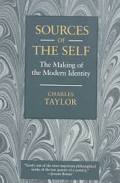Jim Holt at Lapham’s Quarterly:
 Some philosophers—among them MacIntyre, Paul Ricoeur, and Charles Taylor—have insisted that if a narrative is to endow a human life with meaning, it must take the form of a quest for the good. But what makes such a quest an interesting story? There had better be some trouble in it, because that’s what drives a drama. If adversity doesn’t figure prominently in your autobiographical memories, your life narrative will be a bit insipid, and your sense of meaningfulness accordingly impaired.
Some philosophers—among them MacIntyre, Paul Ricoeur, and Charles Taylor—have insisted that if a narrative is to endow a human life with meaning, it must take the form of a quest for the good. But what makes such a quest an interesting story? There had better be some trouble in it, because that’s what drives a drama. If adversity doesn’t figure prominently in your autobiographical memories, your life narrative will be a bit insipid, and your sense of meaningfulness accordingly impaired.
The claim that big troubles are essential ingredients of a good narrative, and hence of a good life, is called by psychologists the “adversity hypothesis.” If true, this hypothesis “has profound implications for how we should live our lives,” observes the psychologist Jonathan Haidt: “It means that we should take more chances and suffer more defeats.”
more here.
